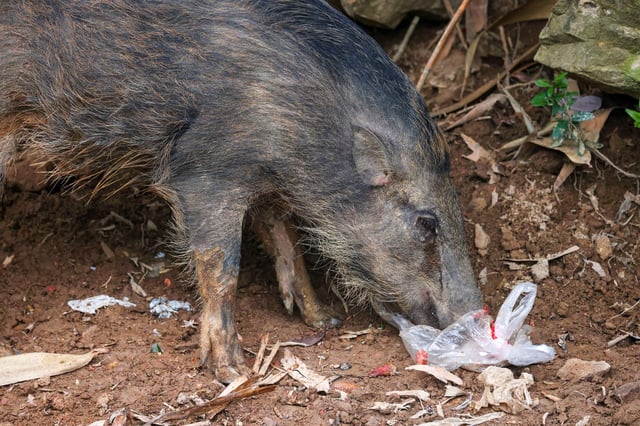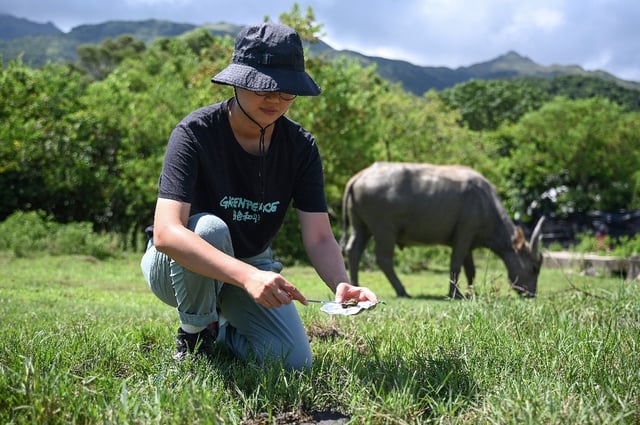Overview
- Researchers collected 100 fecal samples from seven locations, discovering microplastics in 85% of them.
- The study involved species such as buffalo, cattle, boars, macaques, and porcupines.
- Most common microplastics found were polyethylene and polypropylene, used in single-use plastics.
- Findings highlight that even wildlife far from urban areas are ingesting microplastics.
- Greenpeace calls for a strong global plastic treaty, stressing the urgency of addressing plastic pollution.

